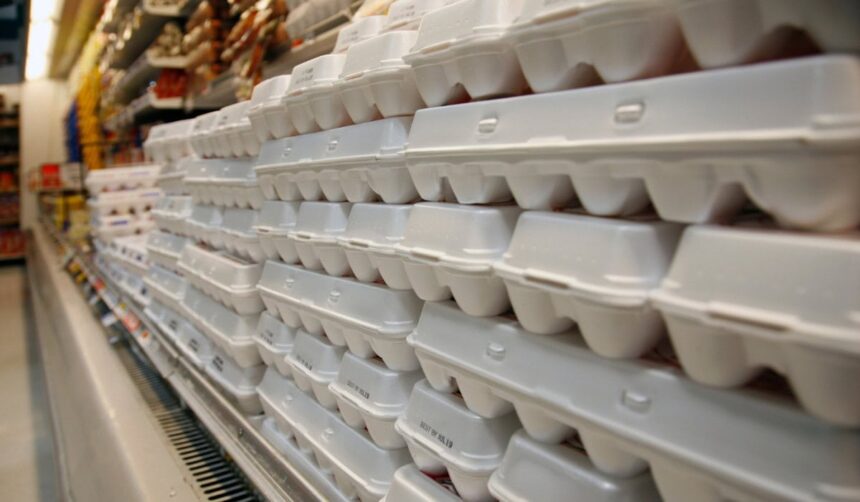Approximately 100,000 eggs were stolen from a truck in Pennsylvania. The value of the heist? Around $40K.
Authorities are investigating the theft of approximately 100,000 Pete & Gerry’s organic eggs in Pennsylvania. A report from the Pennsylvania State Police said the theft was reported after it was noticed that the eggs were removed from the rear of a distribution trailer around 8:40 p.m. on Feb. 1. The trailer was parked at a location in Antrim Township, Pennsylvania.
“Pete & Gerry’s is aware of a recent incident in Franklin County, Pa., and we are actively working with local law enforcement to investigate,” the company said in a statement to PEOPLE. “We take this matter seriously and are committed to resolving it as quickly as possible. Due to the ongoing investigation we cannot comment any further on this matter.”
Pennsylvania State Police said in an incident report that the theft was reported on Feb. 1 at 8:40 p.m.
This brazen theft comes at a time when egg prices have increased substantially and supply has been reduced due to the avian flu outbreak. According to an outlook from the U.S. Department of Agriculture, U.S. egg prices are slated to increase by about 20% within the year, while overall food prices are forecast to rise by 2.2%.
When Will the Price of Eggs Drop?
Currently, it appears that egg prices will continue to increase due to bird flu leading to fewer eggs produced overall and high customer demand.
RetailWire previously reported that the average price of a dozen eggs lands at around $4 or more, and the shortage has led to some supermarkets limiting the number of dozen eggs customers can purchase. In some stores, it’s two dozen, while others generously allow four.
CNET spoke to David A. Anderson, a professor of economics and business at Centre College in Danville, Kentucky. He noted, “If the bird flu outbreak does not become significantly worse, I expect that egg prices will take a downward path.”
Anderson continued, “Over time, destroyed hen populations will be replaced, new egg sources will appear in response to the high prices, and consumers with low-to-moderate preferences for egg products will adapt to substitutes, especially in the places with the highest egg prices. These increases in supply and decreases in demand will usher the prices lower.”
Is the rush to purchase eggs — or steal — in response to fear from outside factors such as bird flu or fear of prices rising further? Or is the public truly consuming as many eggs as they’re buying? Time will tell as this shortage continues.

























